Starting high school guide: How to talk to kids about sexting, porn and drugs
Sexting, porn, drugs are just some of the difficult issues parents must be across as their kids start high school. Here’s our guide to Year 7.
Starting high school is a big deal for most children, but it is also a good time for parents to swot up on the issues their teens may face in the coming years.
Among them are sexting, pornography, sex, self-harm, vaping, drugs and alcohol.
The Quirky Kid Clinic CEO and child psychologist Kimberley O’Brien said the first hurdle for Year 7 kids was adjusting to the dynamics of bigger social groups and getting used to being the smallest fish in the pond again.
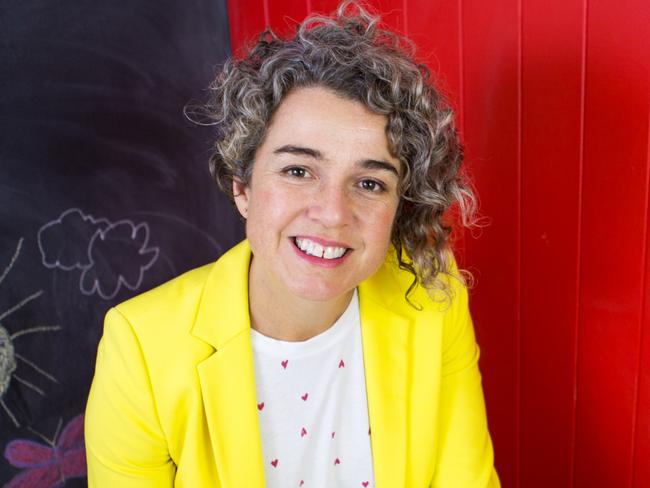
Signs they are struggling include them wanting to stay in their bedrooms more, or being more sullen or argumentative.
“If schools don’t manage phone use at breaks or lunch times then some may withdraw and look at their phones because it is easier than dealing with the social dynamics,” Dr O’Brien said.
“It’s a lot to get used to, so remember they need a lot of love and support from their parents as they adjust.”
For some it can take a couple of terms to feel more comfortable.

Reachout chief executive Ashley de Silva, said his organisation has advice on its website for both children and parents on how to navigate some of the bigger issues that can happen during the high school years.
He recommended not sitting kids down for long lectures, but to have more open conversations about different subjects, by perhaps introducing a topic that is in the news.
Research shows that the average age a child has their first drink is between 15 and 16.
“Have that conversation about alcohol before then,” Mr de Silva said.
“But if a young person goes to a party and drinks too much, keep that door open, so they know they can call you for help.”
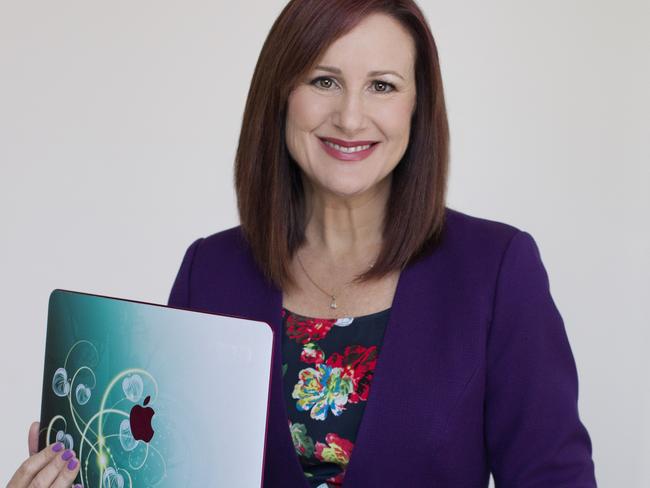
The Cyber Safety Lady, Leonie Smith, who advises parents on how to manage their child’s online use, said they needed to retain some control over what their teen was doing, but also allow them some privacy.
She said it was essential to keep pornography filters on, and for parents to go through all the pitfalls of what can go wrong on social media with their child, including online predators and sexting.
Research shows that one in three young people aged 14 to 17 have experienced sexting.
Ms Smith said kids need to know that sharing a partial nude or nude picture of a person under the age of 18 is illegal and classed as child abuse material.
“For a lot of kids sexting is normalised, they don’t understand what the fuss is about, it’s like flirting,” she said.
“So, talk about how it can go wrong. For example, how a nude image can be used against them.”.
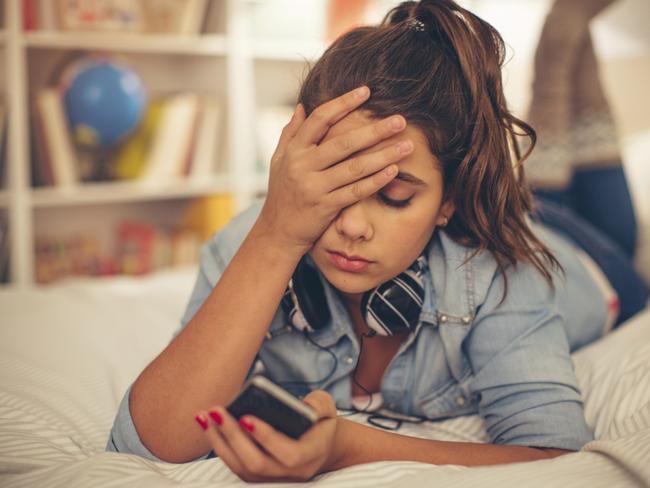
Q&A WITH THE EXPERTS
Starting high school can be a big deal for kids, but what do parents need to know? Well, quite a lot actually. It’s time to do your homework on sexting, pornography, and vaping. Social affairs reporter Julie Cross, with help from The Quirky Kid Clinic child psychologist Kimberley O’Brien, Kids First Children’s Services Founder Sonja Walker, The Cyber Safety Lady, Leonie Smith, Alcohol and Drug Foundation CEO Erin Lalor and Reachout CEO Ashley de Silva, answer your burning questions.
What should I expect as my child enters year 7?
High school is a big adjustment and it is normal for a child to slip backwards academically at the start of the year, but they will pick up again at the end of the year.
Children of this age will begin to mix in bigger groups. Some find it difficult dealing with the dynamics of a larger group. Some might find being on their phones easier than dealing with lots of people.
You might notice your child withdrawing. Try to help them find some friends outside of school, through other activities, such as sport.
Some also feel intimidated being surrounded by older kids. It’s a lot to get used to, so remember they need a lot of love and support from their parents as they adjust.
How can I help them settle?
Make sure they go on the Year 7 camp, which is normally in the first few weeks of the first term. Also, help them to be organised. They will have lots of teachers, instead of just one, and lots of new subjects.

How do you help your child manage social media?
Most kids will have started using social media by now, but there should have been a lot of discussion about safety online before this stage. The biggest challenge to any parent is how they manage it.
Make sure their accounts are private. Many kids want to be influencers or famous, hence they want to be on TikTok and other sites to get likes. If that’s the case, you need to be on the ball. Keep reminding them they can speak to you about anything they find online, because few kids will tell an adult when something goes wrong.
What about sexting?
Kids call it nudes, parents know it better as sexting. It can start in primary school, but by the age of 13 it can be pretty rife. Research shows that one in three young people aged 14 to 17 have experienced sexting, and sexting is more common among girls (35 per cent) than boys (22 per cent).
Kids need to know that sharing a partial nude or nude picture of a person under the age of 18 is illegal and classed as child abuse material.
For a lot of kids sexting is normalised, they don’t understand what the fuss is about, it’s like flirting. So, when talking to your child, concentrate on how it can go wrong. For example, how a nude image can be used against them. A lot of girls get “slut shamed”. Sometimes girls ask boys for pictures to blackmail them. Talk to them about the pitfalls.
What’s catfishing?
Catfishing is when strangers online pretend to be someone they’re not. Depending on what their intentions may be, they might work on becoming your child’s main confidant, and will try to separate the child from the family. They may start to introduce the child to pornography. They will gradually build up to asking a child to send a photo of themselves.
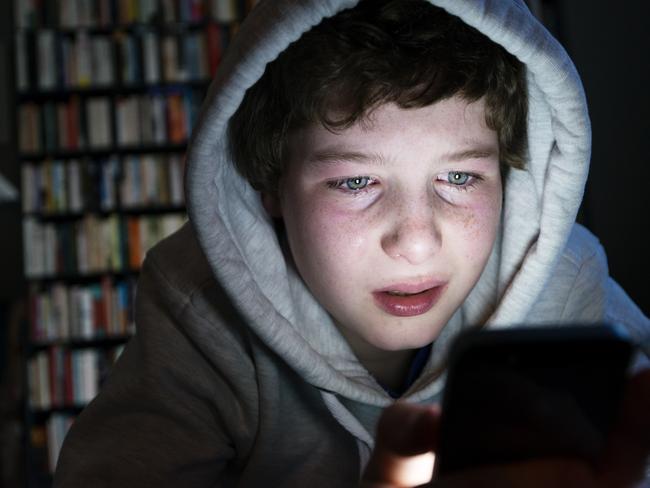
What happens if something goes wrong online?
Parents can help their child report it to the relevant platform and then go to esafetygov.au to report it if unwanted material isn’t removed. Reports can be made 24/7. They will act quickly, especially if it relates to a minor. Let children know where they can go independently for help – suggest a teacher, or a family friend. Kids Helpline offers counsellors 24 hours a day. Give them other options in case they won’t come to you. Also, if it is serious – such as explicit images of a minor – alert the police and the school.
How do you restrict the amount of time they’re online?
Set clear agreements when digital devices can be used and be a good role model.
Show you have boundaries.
Will drugs and alcohol be an issue at this age?
High school is when children will be more exposed to peers using drugs and alcohol. However, research shows most kids get their first drink from a parent, which goes against the advice of experts. The National Health and Medical Research Council recommends zero alcohol before the age of 18. The average age for a child to have their first drink is between 15 and 16. While most kids will experiment with substances under the age of 18, the Australian Drug and Alcohol Foundation says the majority of children do not regularly drink or take drugs. If you notice a child is drinking or taking drugs regularly, take them to your GP for help. Also tell them not to be afraid to call an ambulance if a friend has overdosed on drink or drugs.
How do you tackle these subjects with your teen?
They don’t want one big lecture on any of these subjects. Perhaps use a news article to start off a conversation. Remember they probably already know about these subjects, so listen to what they say too. Stick to facts. For tips on how to talk to them go to reachout.com.
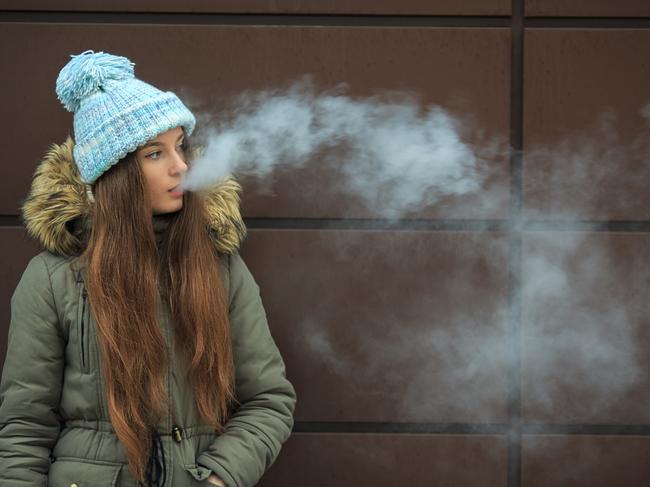
What about vaping?
This is becoming a big issue for schools, as vapes are often small – about the size of a USB – and are hard to detect when being used. Most emit a slightly sweet smell. The disposable ones are cheap. Kids are often selling them to one another in the playground. Most are illegal, produced overseas and contain large amounts of nicotine and lots of chemicals. Talk to your teen about the unknown health hazards of vaping, nicotine addiction and the manipulation of big companies to get young people hooked on nicotine.
What’s the best thing you can do for your Year 7 kid?
Keep communicating with them. Continue to have family meals together as often as possible. Keep up team activities or sport outside of school. Make sure they have other trusted role models in their lives they can turn to such as a godparent, uncle, cousin or a family friend. They will need them more and more as they progress through high school.
GO TO WEBSITES:
More Coverage
Originally published as Starting high school guide: How to talk to kids about sexting, porn and drugs





